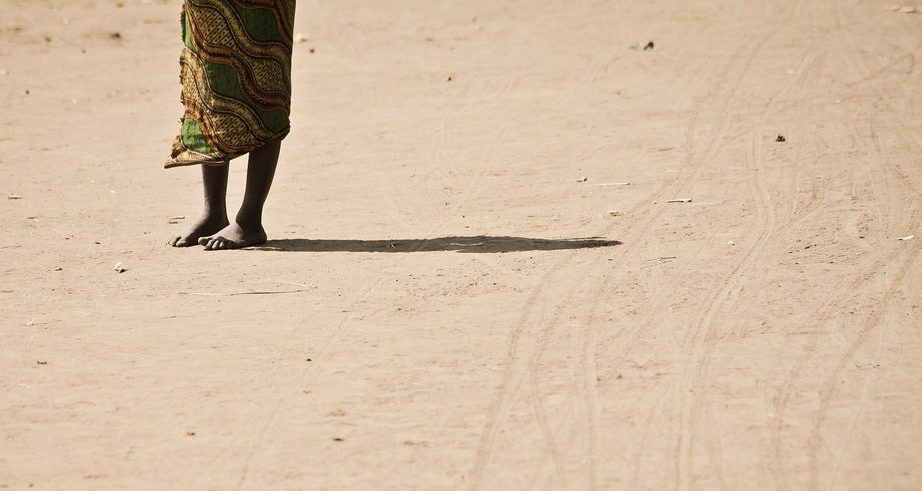What to Make of Rebecca: Thoughts on Parashot Chayei Sarah and Toldot
We spent the last two weeks of Shabbat morning Torah study discussing the character of Rebecca and her relationship with Isaac. Judy Wildman led our discussion of Parshat Chayei Sarah on Nov 13 and I led the discussion of Parshat Toldot the following week on November 22.
We first meet Rebecca as a young girl in Parshat Chayei Sarah at the well where she and other woman go to draw water. Abraham sends his servant Eliazar back to his hometown to find a wife for Isaac but he otherwise gives Eliazar no guidelines about what to look for in a potential bride. Eliazar devises a test – that when he asks for water, the woman will provide water not only to him but to his camels [Gen 24:12-14]. Along comes Rebecca and does just that, demonstrating her hospitality and kindness [Gen 24:15-21].
Rachel is also quick to act and decisive. She rushes home to tell her mother about the encounter with Eliazar [Gen 24:28] and, when Eliazar requests to return with her as instructed by Abraham, it is Rebecca who makes the decision to go [Gen 24:54-58]. I think it is also noteworthy that her family gave her the opportunity to choose whether or not to accept the offer and go.
Rebecca and Isaac see each other for the first time – a cinematic moment [Gen 24: 33-65]. And then, extraordinarily, the Torah tells us that Isaac loved Rebecca and found comfort with her after the death of his mother [Gen 24:67]. – extraordinarily because the Torah rarely reveals people’s feelings. And also, perhaps importantly, the Torah does not reveal how Rebecca felt, whether she reciprocated that love.
We now move on to Parshat Toldot. Isaac and Rebecca have been married for twenty years but have not had children. Isaac prays to God that Rebecca conceive [Gen 25:19-21]. However, there is no indication that Rebeccah and Isaac spoke about the situation before he prayed to God and we do not know whether Rebecca wanted him to do this. We assume, but do not know for sure, that Rebecca actually wanted children.
The uncertainty about this is increased by Rebecca’s reaction to her pregnancy. Oh yes, Isaac’s prayer was successful – maybe too successful. Rebecca has conceived twins and is having a difficult pregnancy, so difficult that she questions the reason for her own existence [Gen 26:21-22]. At this point, Rebecca herself seeks guidance directly from God [Gen 25:22]. Again, there is no indication that Rebecca spoke with Isaac about the situation. God responds to Rebecca that there are two nations in her womb (not, to my thinking, the most reassuring guidance) and that ‘the older shall serve the younger’. There is no indication about what Rebecca feels about this prophecy – although perhaps we can infer this from her later actions. Perhaps even more significantly, there is no indication that Rebecca shares the prophecy with Isaac. I can’t help but wonder how differently things might have turned out if they had discussed the prophecy and decided together what to do in response.
The next thing we learn is that Isaac favored Esau ‘becasue he liked game’ and Rebecca favored Jacob [Gen 26: 28]. Isaac’s reason for favoring Esau has to have started only after Esau was able to hunt and cook, and so perhaps was not apparent when his sons were younger. No reason is given for Rebecca’s favoring Jacob – it could be related to the prophecy or perhaps to Esau’s appearance at birth – ‘red, like a hairy mantle all over’ [Gen 26:25] – and so manifest even when they were first born. There is an apparent potential here to drive Isaac and Rebecca apart.
The next episode in their relationship is not about the children, however. There is a famine and the family travel to Gerrar. Isaac tells the men of Gerrar that Rebecca is his sister out of concern that the men would covet Rebecca because of her beauty and, therefore, kill him [Gen 26:7]. There was a similar episode in Abraham’s life [Gen 12: 10-20] with what I see as a significant difference – Abraham explains to Sarah why he has presented her as his sister; Isaac, however, does not talk to Rebecca about what he is doing. How might this episode have affected their relationship?
And now we come to the deception of Isaac by Rebeccah and Jacob [Gen 27:1-13].
Rebekah overhears Isaac asking Esau to bring him food and telling Esau saying that he will bless him afterwards. Rebekkah responds by telling Jacob to get some sheep that she will cook for him to bring to Isaac. Isaac, by this time, has grown old and his eyesight is failing. Rebekah takes advantage of this by having Jacob cover his body with fur so that Isaac will not realize he is not Esau. When Jacob expresses concern that his father will realize the deception, Rebekah tells him that she accepts responsibility and that he should just do as she says. The trick works and Jacob receives Isaac’s blessing. Esau, not surprisingly is very angry and vows to harm Jacob, although only after Isaac has died. So Rachel tells Jacob to run away to her family.
And now, finally, we have Rebecca talking to Isaac – and she lies to him. She tells Isaac that she is sending Jacob to her family to find a wife, just as Abraham sent his servant to find Isaac a wife. And she says this is necessary because Esau has married local women against his family’s wishes and she wants to make sure that Jacob does not do the same [Gen 27: 46]. In response, Isaac conveys another blessing on Jacob.
Rebekah’s deception has always troubled me. The Rabbi’s justified her actions based on the prophecy and further made Esau out to be unworthy and even evil.
However, I’m not sure that the Torah supports that interpretation. One thing about the Torah is that it doesn’t explicitly provide judgments about what people do. It does, however, provide consequences. Jacob (spoiler alert) will end up experiencing deception against himself by Rebekah’s brother and gets tricked into marrying Leah rather than the sister he wanted to marry, Rachel.
Meanwhile Esau, hearing Isaac tell Jacob not to marry a local woman, realizes that his first marriages were unacceptable to his parents and marries another wife who isa descendant of Abraham (from Ishmael) [Gen 28:9].
Isaac thus has a strengthened connection with his favorite son while Rachel never sees Jacob, her favorite, again.
While I cannot feel that Rebekah was right in deceiving Isaac, I can understand why she might have done this. As I have pointed out, there seems to have been a serious lack of communication between Isaac and Rebecca. There also seems to have been another problematic aspect to their relationship – a lack of agency, of even an opportunity to exert agency, on the part of Rebecca.
This stands in apparent contrast to her circumstances within her own family – recall that she had the ability to choose whether or not to go with Eliazar to be married. Although he loved her, Isaac does not seem to have empowered Rebecca to act independently. I ask myself – how might a person assert themselves when they are not empowered to do so? Perhaps eavesdropping and deceit seemed to Rebekah to be her only options.
image: “Matunduzi School, Girls Education Support Initiative, Malawi 2012 (IM/Creccom partner initiative, Photo: Erik Törner)” by eriktorner is licensed under CC BY-NC-SA 2.0.

